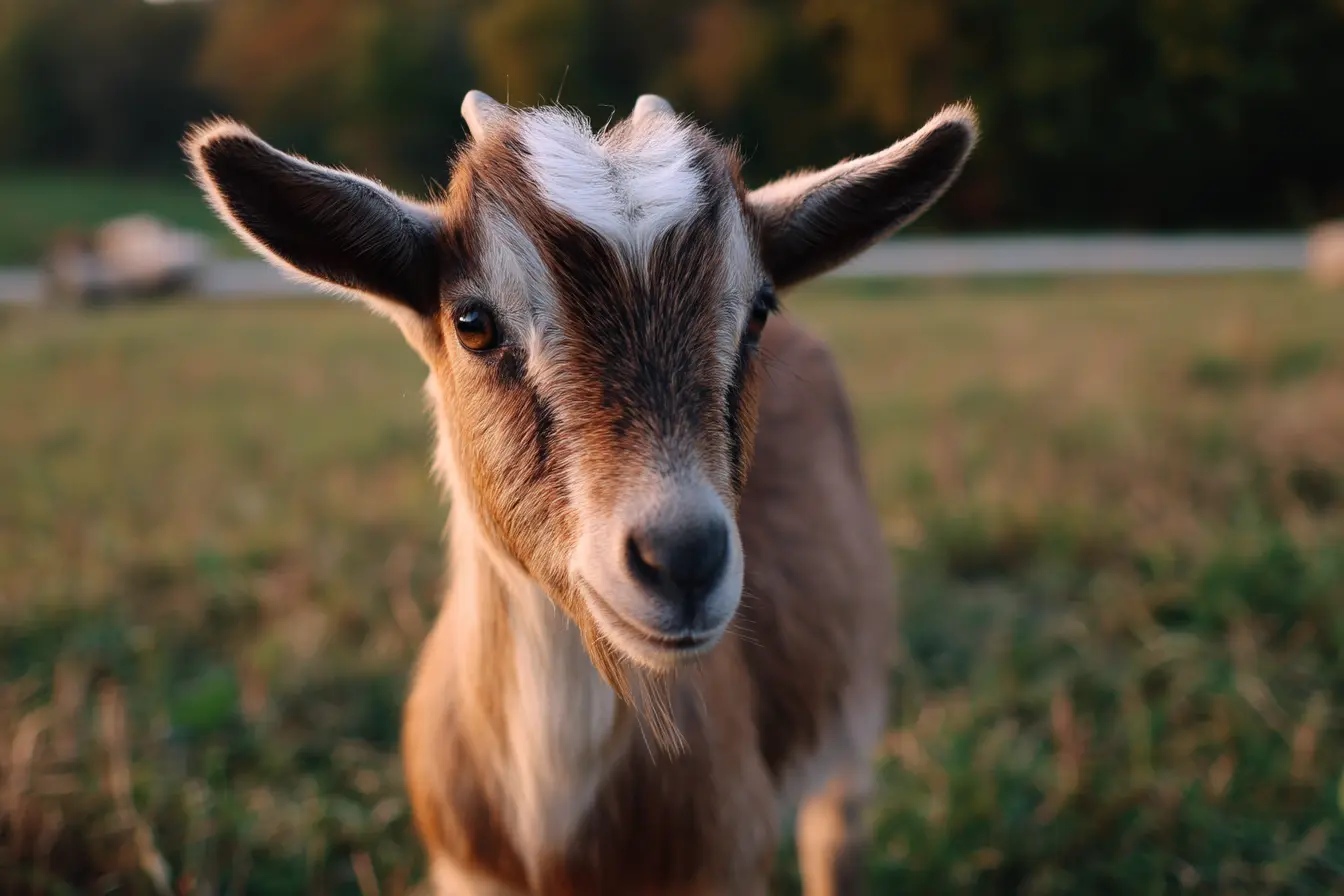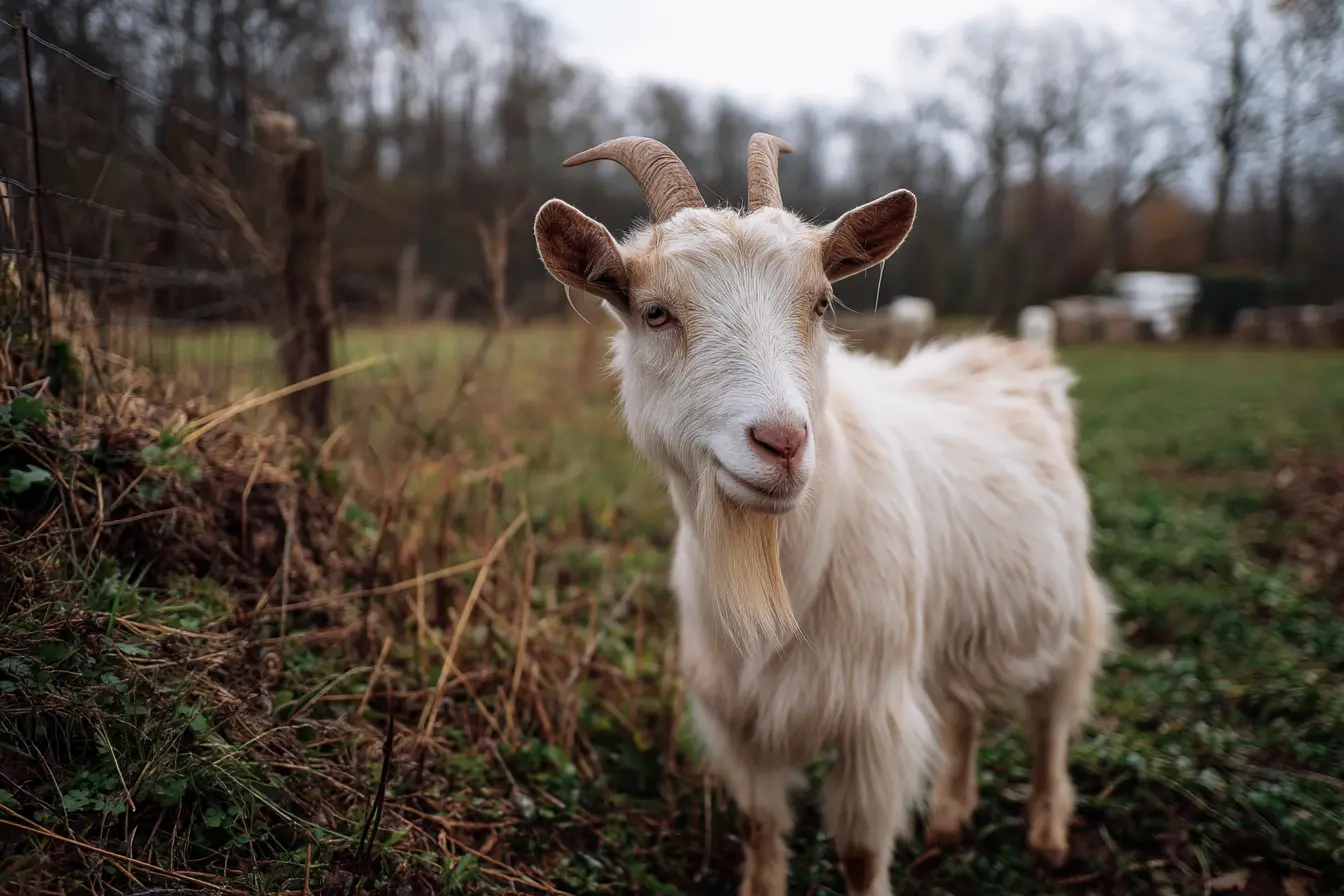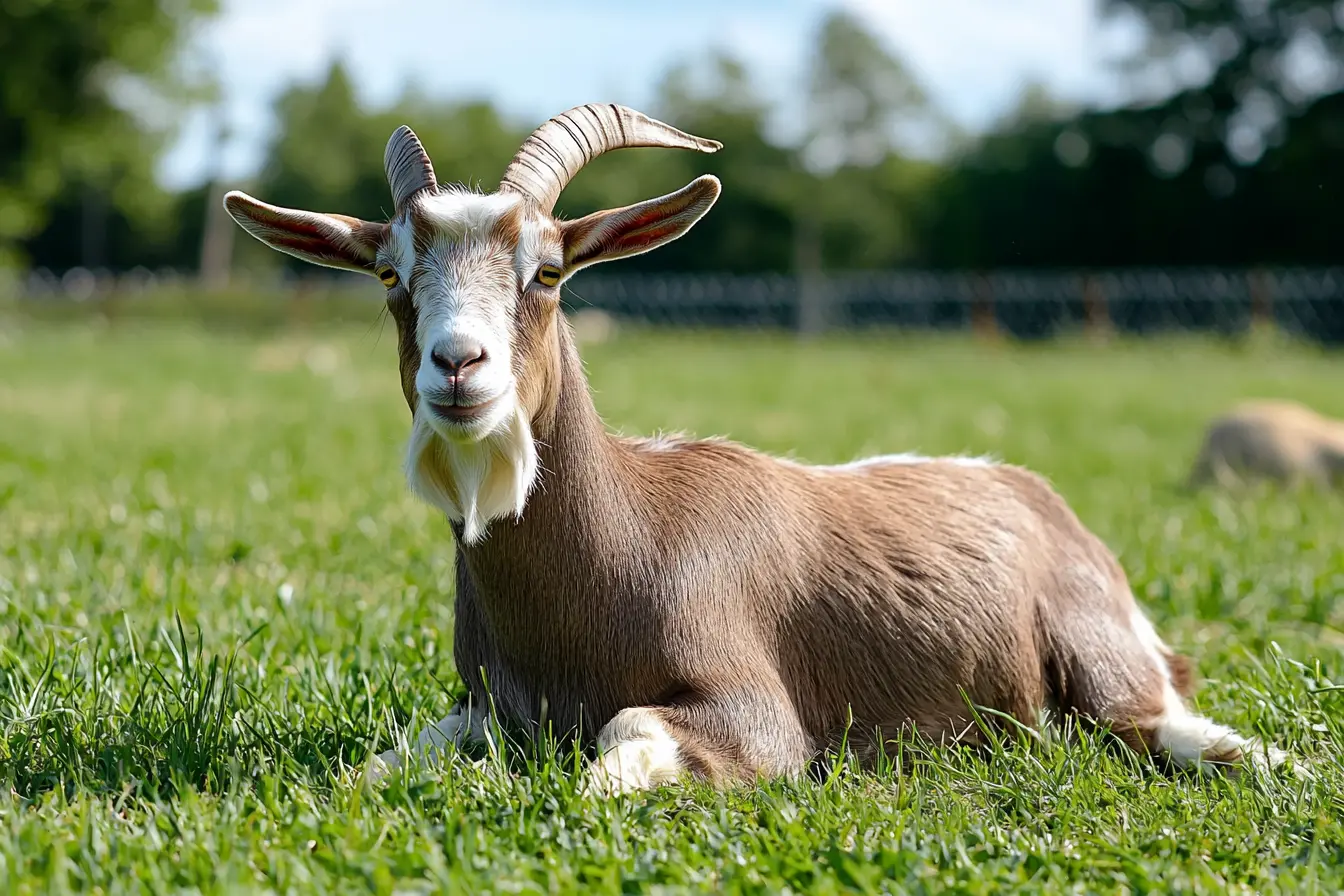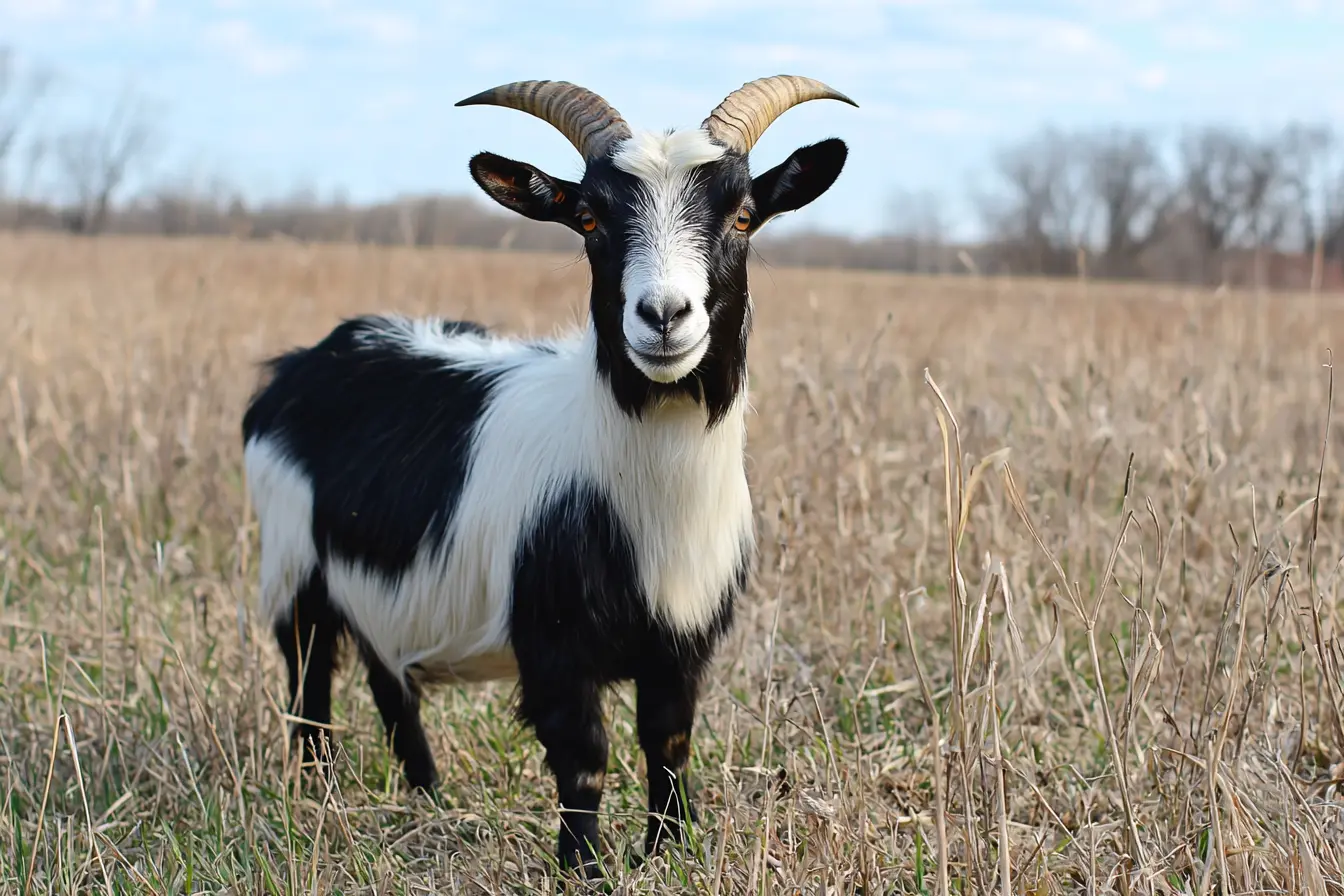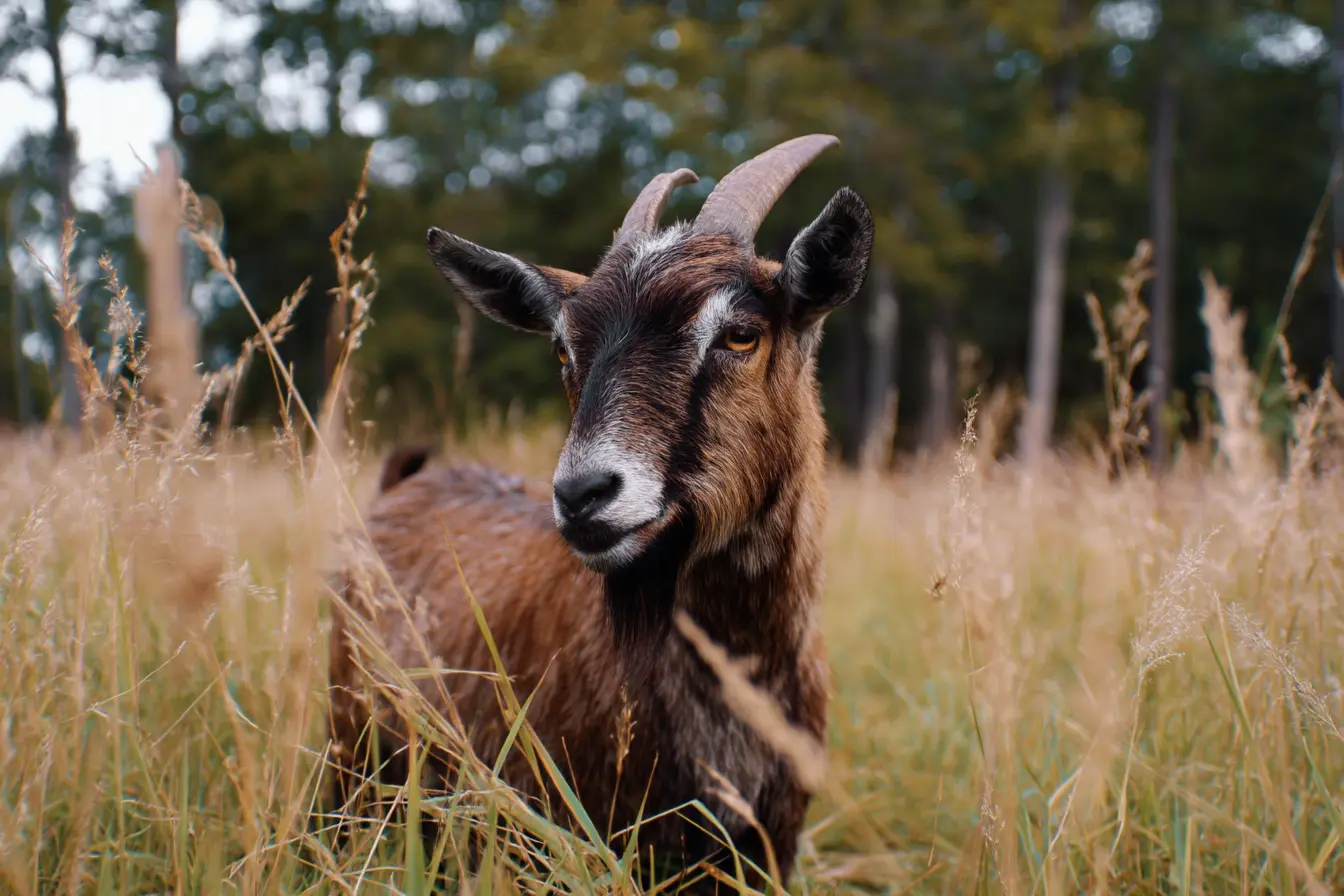
A Guide to Common Illnesses in Goats and Symptoms to Watch For
Goats are generally hardy animals, but they can be susceptible to a variety of illnesses. For goat owners, recognising the signs of common health issues is essential to keep your herd healthy and prevent serious problems. Below is a guide to common goat illnesses, symptoms to watch for, and the actions you should take to care for your goats.
Parasites (Internal and External)
Symptoms to Watch For:
- Weight loss
- Diarrhoea
- Pale gums (a sign of anaemia)
- Rough coat
- Bottle jaw (swelling under the jaw)
Action
Parasites, including worms, lice, and mites, are a major concern in goats. Regular faecal testing and strategic deworming are essential. Work with your vet to establish a worming schedule and use a rotation system for grazing pastures to minimise reinfection. For external parasites, use appropriate treatments such as pour-on solutions or sprays.
Bloat
Symptoms to Watch For
- Distended abdomen (especially on the left side)
- Discomfort or restlessness
- Grinding teeth
- Difficulty breathing
- Sudden collapse (in severe cases)
Action
Bloat is a build-up of gas in the goat’s stomach and can be life-threatening if not treated quickly. It can occur due to overeating lush grass or certain grains. If you suspect bloat, walk the goat around and gently massage its left side. In severe cases, you may need to administer anti-bloat medication or call a vet immediately.
Pneumonia
Symptoms to Watch For
- Coughing
- Laboured breathing
- Nasal discharge
- Fever
- Lethargy
Action
Pneumonia can develop due to sudden weather changes, stress, or poor ventilation. Ensure goats have a dry, well-ventilated shelter. If symptoms of pneumonia are present, consult your vet for antibiotics and supportive care. Early treatment is essential to prevent severe illness.
Clostridial Diseases (Enterotoxaemia, Tetanus)
Symptoms to Watch For
- Sudden death (in acute cases)
- Loss of appetite
- Diarrhoea
- Abdominal pain
- Muscle stiffness or spasms (in tetanus)
Action
Clostridial diseases are caused by bacteria that are commonly present in the environment. Vaccination is the best prevention. Ensure goats are vaccinated according to a vet-recommended schedule, especially before kidding or significant dietary changes.
Scours (Diarrhoea)
Symptoms to Watch For
- Loose, watery stools
- Dehydration
- Weakness
- Loss of appetite
Action
Scours can be caused by bacterial infections, parasites, or changes in diet. Isolate affected goats and ensure they have access to clean water. Administer electrolytes to prevent dehydration and consult your vet to identify the cause and prescribe treatment. Regular worming and clean housing can help prevent scours.
Caseous Lymphadenitis (CL)
Symptoms to Watch For
- Swollen lymph nodes (around the neck, shoulders, or udder)
- Abscesses that may burst
- Weight loss
Action
CL is a contagious bacterial disease that causes abscesses. There is no cure, so prevention is key. Isolate any goat with abscesses and practice good biosecurity measures. Consult your vet for management advice, including testing and culling infected animals to prevent the spread of CL in your herd.
Mastitis
Symptoms to Watch For
- Swollen, painful udder
- Discoloured milk or clots
- Fever
- Loss of appetite
Action
Mastitis is a bacterial infection of the udder. Early intervention is crucial to prevent permanent damage. If you suspect mastitis, contact your vet for antibiotics and anti-inflammatory medication. Maintain good hygiene during milking and ensure the goat’s bedding is clean and dry.
Kidney Stones (Urinary Calculi)
Symptoms to Watch For
- Straining to urinate
- Dribbling urine or inability to pass urine
- Restlessness
- Swollen abdomen
- Depression or lethargy
Action
Kidney stones are more common in male goats, especially wethers (castrated males), and can be life-threatening if not addressed. Prevention includes feeding a balanced diet with a proper calcium-to-phosphorus ratio and providing access to clean water. If you suspect urinary blockage, contact your vet immediately for emergency treatment.
Ketosis (Pregnancy Toxaemia)
Symptoms to Watch For
- Lethargy
- Loss of appetite
- Weakness or reluctance to move
- Neurological signs, such as blindness or head pressing
Action
Ketosis typically occurs in pregnant goats during the last few weeks of gestation when their energy demands are not met. Prevention involves ensuring pregnant does receive a balanced diet with sufficient energy. If you notice symptoms, provide an energy supplement (such as propylene glycol) and contact your vet for further advice.
Pink Eye (Keratoconjunctivitis)
Symptoms to Watch For
- Red, inflamed eyes
- Watery discharge
- Sensitivity to light
- Cloudy or opaque eyes
Action
Pink eye is a contagious condition that can spread quickly through your herd. Isolate affected goats to prevent transmission and keep their living area clean and dry. Treatment typically includes antibiotic eye ointments prescribed by your vet. Preventative measures include reducing dust and flies in your goats' environment.
Caprine Arthritis Encephalitis (CAE)
Symptoms to Watch For
- Joint swelling and stiffness
- Difficulty standing or walking
- Poor coat condition
- Weight loss
- Neurological issues in kids
Action
CAE is a viral disease with no cure. It is primarily spread through colostrum or milk from infected does to their kids. Prevention includes regular testing of your herd and separating infected goats. Ensure that kids receive pasteurised milk or milk replacer to reduce the risk of infection.
General Health Management Tips for Goats
- Regular Health Checks: Observe your goats daily for any signs of illness or unusual behaviour. Catching issues early is key to successful treatment.
- Vaccination Programme: Work with your vet to establish a vaccination schedule to protect your herd from preventable diseases.
- Clean Living Environment: Keep goat housing clean and dry to reduce the risk of infections and illnesses.
- Balanced Diet: Ensure your goats receive a diet with the right balance of nutrients, minerals, and fresh water. Avoid overfeeding grain to prevent urinary calculi.
- Good Biosecurity: Limit visitors to your herd, isolate new or sick goats, and disinfect equipment to prevent the introduction and spread of disease.
- Keep Records: Maintain detailed records of vaccinations, treatments, and health issues for each goat in your herd.
When to Call the Vet
While some minor issues can be managed on your own, you should contact a vet immediately if your goat shows any of the following signs:
- Difficulty breathing
- Inability to urinate
- Sudden collapse or severe lethargy
- Severe diarrhoea or scouring
- Signs of neurological issues, such as head pressing or seizures
- Persistent lameness or swollen joints
- Any unusual behaviour that concerns you
By understanding common illnesses in goats and the symptoms to watch for, you can take proactive steps to maintain a healthy, thriving herd. Always consult your vet if you’re unsure about your goat’s health, and remember that prevention and early intervention are key to avoiding serious issues.
Contents
- Parasites (Internal and External)
- Bloat
- Pneumonia
- Clostridial Diseases (Enterotoxaemia, Tetanus)
- Scours (Diarrhoea)
- Caseous Lymphadenitis (CL)
- Mastitis
- Kidney Stones (Urinary Calculi)
- Ketosis (Pregnancy Toxaemia)
- Pink Eye (Keratoconjunctivitis)
- Caprine Arthritis Encephalitis (CAE)
- General Health Management Tips for Goats
- When to Call the Vet
Tags
Vets near you
Speciality vets
- Aquatics vet specialists
- Birds vet specialists
- Camelids vet specialists
- Cats vet specialists
- Cattle vet specialists
- Deer vet specialists
- Dogs vet specialists
- Equines vet specialists
- Exotic vet specialists
- Goats vet specialists
- Pigs vet specialists
- Poultry vet specialists
- Sheep vet specialists
- Small Mammals vet specialists
- Wild vet specialists
Vet facilities
- Accessible by public transport
- Blood testing
- Car park nearby
- Client car park
- Dentistry
- Diagnostic imaging
- Disabled public access
- Flea and worm treatments
- Microchipping
- Mobile services
- Neutering
- Open at weekends
- Out-of-hours service
- Referral interests
- Referrals only
- Street parking outside
- Toilets available
- Vaccinations
